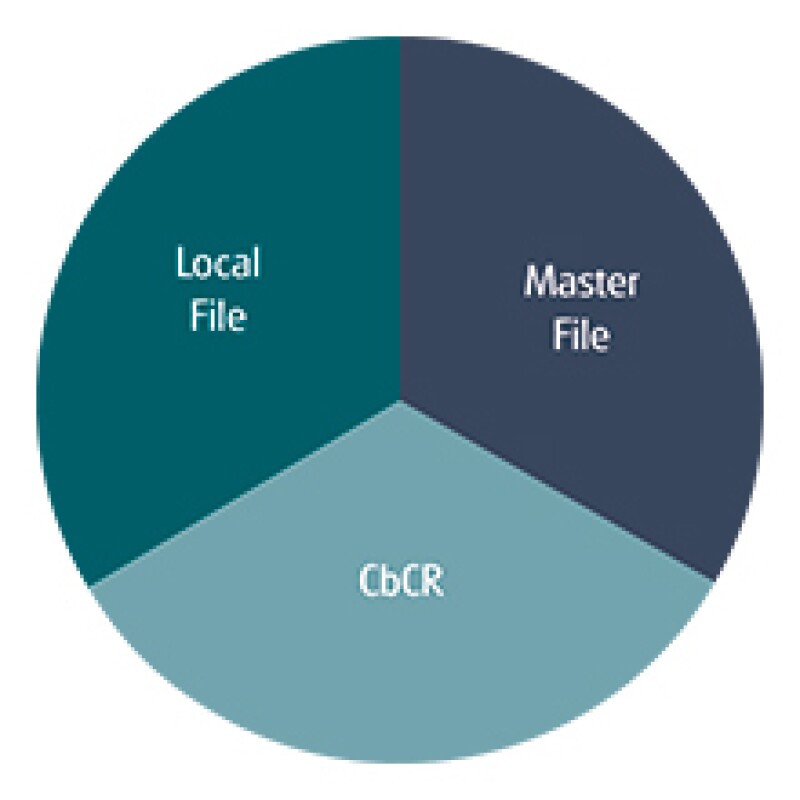Figure 1: New three-tiered TP documentation |

|
On October 5 2015, the OECD released its final report on Action 13, "Transfer Pricing Documentation and Country-by-Country Reporting", of the BEPS Action Plan. This final report was released in a package that included final reports on all 15 BEPS Actions.
Action 13 focuses on defining new TP documentation requirements, which will require more detailed information to be provided by multinational enterprises (MNEs) in the future, as the significant improvement of transparency for tax administrations has been identified as one major objective of the BEPS measures. Such detailed information will offer useful indicators for risk assessment and allow tax administrations to better focus their resources. In particular, the new rules on CbCR are recognised as an important tool for international tax administrations to perform high level risk assessment of transfer pricing and other tax risks.
Accordingly, several other countries have already started to implement CbC reporting rules into their national legislation, including Germany.
Overview
On July 13 2016, the German Federal Ministry of Finance published a draft bill intended to implement the new three-tiered TP documentation approach as recommended by the OECD in Action 13. The draft bill also includes the formal announcement of further legislative changes in the area of transfer pricing in Germany, in particular an ordinance providing details about the information that need to be provided, when the new TP documentation law is to be applied.
Although the final wording of the new law has not been released yet, the final version is expected to be published in a timely manner. Furthermore, it could be expected that the final version will not include significant changes in relation to the current draft bill.
The preamble to the draft bill and the additional explanations fundamentally confirm that Germany will follow the OECD recommendations as delivered in the final BEPS Action 13 report. Accordingly, the German TP documentation requirements will consist of a master file, a local file and a CbCR.
The draft foresees mandatory CbCR for fiscal years beginning after 31 December 2015, whereas the preparation of a master and local file should become mandatory for fiscal years beginning after December 31 2016.
The new three-tired TP documentation approach shall be implemented into German law through amendments to the existing documentation regulations in Sec. 90 Para. 3 of the General Tax Code (GTC) and by introducing a new Sec. 138a to the GTC. The details are summarised below.

|
Master file and local file preparation are important considerations for MNEs |
Local file
Entities obliged to prepare the local file:
All taxpayers conducting transactions with foreign related parties (≥25%) and/or conducting dealings with their foreign permanent establishments (PEs) are obliged to prepare a local file. It is expected that exceptions regarding TP documentation requirements for small entities will persist. Accordingly, entities with a transactional volume relating to sale/purchase of goods to/from related parties of less than €5 million ($5.3 million) and a transactional volume relating to other transactions of less than €500,000 will still not be obliged to prepare a formal comprehensive TP documentation (as local file) also after implementation of the new rules.
Submission requirements:
According to the draft bill, there will be no changes to submission requirements for TP documentation, which means that taxpayers only need to submit TP documentation upon request of the tax authorities. This will regularly be the case when tax authorities intend to conduct a tax audit. Upon request, the TP documentation must be submitted within 60 days (30 days for so-called "extraordinary business transactions").
This is in contradiction to the OECD recommendations in BEPS Action 13 report, which suggests the provision of the local file on a yearly basis in the course of the tax filing.
Content of the local file:
The local file shall include the detailed description and analysis of all business activities with affiliated entities and non-German PEs. This includes, inter alia, the analysis of functions and risks and the descriptions of the value chain, which also includes a description of the local management structure.
According to the draft bill, the local file shall also include a reconciliation of the P&L statement and the underlying TP policies applied. This means that taxpayers will be required to perform an analysis of the annual net income of the company and provide an explanation in case of discrepancies from the TP policies applied.
Master file
Entities obliged to prepare the master file:
All entities, which are part of a multinational group have to prepare a master file in case the consolidated turnover is above €100 million. In terms of the master file requirements, a multinational group is defined as a group that consists of at least two related entities in two different tax jurisdictions or one entity with at least one permanent establishment (PE) in another tax jurisdiction.
Submission requirements:
The submission requirements are expected to be identical to those implemented for the local file.
Content of the master file:
The master file is intended to give an overview of the worldwide activities of the whole group. Following the OECD recommendation it should contain information on the TP system implemented in the group, but no detailed information on the determination of the transfer prices, which is covered by the local file.
The master file shall include, inter alia:
a chart illustrating the groups legal and ownership structure and geographical location of operating entities
a description of the supply chain for the group's five largest products and or service offerings by turnover plus any other products and/or services amounting to more than 5% of group turnover
a list and brief description of important service arrangements between members of the MNE group, other than research and development (R&D) services, including a description of the capabilities of the principal locations providing important services and TP policies for allocating services costs and determining prices to be paid for intra-group services.
Penalties regarding local and master file
If a taxpayer does not comply with the modified TP documentation requirements to the extent outlined in Sec. 90 Para. 3 GTC, he can be penalised under the new Sec. 162 Para. 3 and 4 GTC. In case of insufficient documentation the tax authorities are authorised to estimate the income of the taxpayer. This will regularly increase the tax base and has to be proven wrong by the taxpayer himself in the following discussions with the tax authorities (shift of burden of proof). Furthermore, penalties based on the adjustment and a fine can be determined by the tax authorities for a delayed submission. Unlike the existing regulations constituted in Sec. 162 Para. 3 and 4 GTC, these penalties can not solely be applied to an entire TP documentation, but also to a single transaction, which is not documented or documented insufficiently.
Country-by-country reporting
The core part of the draft bill is the implementation of the non-public CbC reporting standards, which should be introduced in the new Sec. 138a GTC.
According to new Sec. 138a GTC, CbCR obligations shall apply to German-headquartered multinational groups with annual consolidated group revenue of at least €750 million.
Additionally, a 'secondary mechanism' will be implemented for domestic entities that are part of a MNE group that includes both a 'secondary reporting local filing' and 'surrogate parent filing'. The secondary mechanism provides for the filing of the country-by-country report (CbC report) for financial years commencing after December 31 2016 only. Non-compliance with the CbCR obligation may be subject to a penalty of up to €5,000, which does not constitute a large amount of money for MNEs. However, MNEs being non-compliant with CbCR rules of course could face significant other negative consequences including negative reporting in public discussion etc.
CbC reports would have to be filed within 12 months, starting from the end of the fiscal year to which they relate. The report would be delivered automatically by the German tax authorities to foreign tax authorities through exchange of information channels. The automatic exchange with foreign countries would only take place on the basis of an underlying agreement with the foreign country, such as a double tax treaty.
The content of the mandated CbC report includes:
Aggregate information relating to the amount of revenue, profit (loss) before income tax, income tax paid and accrued, number of employees, stated capital, accumulated earnings and tangible assets other than cash or cash equivalents in each jurisdiction in which the group operates.
Identification of each constituent entity within the group, including the entity's jurisdiction of tax residence (and the jurisdiction under which the entity is organised, if different from its jurisdiction of tax residence) and the nature of the entity's main business activity or activities.
Summary of TP documentation requirements
Figure 2 provides an overview of the new TP documentation rules included in the draft bill.
Figure 2: Overview TP documentation requirements |
||||
Content |
Entities obliged |
Temporal requirements |
Regulation |
|
Local file |
Local documentation of business transactions under the arm’s-length nature of the transfer prices |
- Taxpayers with transactions with related parties (less than 25%) or foreign PEs - Transactions related to goods over €5 million or other transactions more than €500,000. |
- Submission 60 days upon request - Beginning for financial years (FYs) beginning after December 31 2016 |
Sec. 90 Para 3 GTC |
Masterfile |
Overview of the worldwide activities of the group the entity is part of |
- Multinational groups with two related entities in different tax jurisdictions or one entity with a PE in another tax jurisdiction - Consolidated revenues more than €100 million |
- Submission 60 days upon request - Beginning for FYs beginning after December 31 2016 |
Sec. 90 Para 3 GTC |
CbC Reporting |
Country-based figures for all entities of the group (e.g. revenues, employees, tangible assets etc.) |
- German parent company of a multinational group - German subsidiary with a foreign group parent (designates to prepare and file the CbC report) - German subsidiary, in case is the tax authorities are not provided with a CbC Report - Consolidated revenue > €750 million |
- Submission on a yearly basis (electronic filing one year after FY) - Beginning for FYs beginning after December 31 2015 |
Sec. 138a GTC |
CbCR and TP risk assessment
It could be expected that MNEs will face a challenge to comply with the new TP documentation rules, especially the CbCR requirements. The CbCR template will require MNEs to provide annually, and for each jurisdiction in which they do business, aggregate information relating to the global allocation of the their income and taxes paid, together with certain indicators of the location of economic activity within the MNE group, as well as information about which entities do business in a particular jurisdiction and the business activities in which each entity engages.
Accordingly, MNEs would be well advised to keep the control of their data and financial information provided to tax administrations globally, especially through the CbC reports. In addition, many MNEs are in the process of evaluating the possibilities of IT-based software solutions to comply with tightened documentation and reporting requirements.
As outlined by the OECD, the CbCR is a tool that is intended to allow tax administrations to perform high-level TP risk assessments, or to evaluate other BEPS-related risks.
Accordingly, it seems to be advisable for MNEs to also perform an internal TP risk assessment based on the information included in their CbC report before it is provided to the tax administrations.
Key performance indicators (KPIs)
Companies usually use KPIs to measure how effectively key business objectives are achieved and to evaluate their success at reaching targets. It could be expected that tax administrations will also use certain KPIs for their future TP risk assessment of MNEs from their fiscal point of view.
Based on the figures provided through the CbC report, various KPIs could be calculated, which may be applied by tax authorities for the future TP risk assessment of MNEs.
For example the 'EBT per employee' KPI could be applied as an indicator to identify companies in countries with low tax rates and considering economic substance of companies involved in the value-chain on the basis of headcount (see Figure 3).
Figure 3: EBT per employee |

|
|
Maik HeggmairPartner, Head of Global Transfer Pricing WTS Germany Tel: +49 89 28646-212 Email: maik.heggmair@wts.de Maik Heggmair started his professional career in the TP practice of a Big 4 firm in 2001 and has also worked for several years as an in-house TP manager for a large multinational IT company. There, he was responsible for a variety of complex TP projects including business restructurings and an IP reorganisation. He joined WTS in 2008 as a head of the transfer pricing department. With three partners and a total of 20 TP experts, the company is one of the leading German consultancies in this area. Additionally, Maik heads the global transfer pricing service line of WTS Global, an international consulting network represented in over 120 countries worldwide. |

|
|
Tobias FaltlhauserWTS Germany Tel: +49 69 1338456-341 Email: tobias.faltlhauser@wts.de After completing his degree in business economics, Tobias Faltlhauser joined WTS in 2015 to start his professional career in the TP practice of the company. There, he is deeply involved in global projects regarding the TP documentation of MNEs. As a TP specialist, Tobias is also engaged in various other TP projects such as value chain analyses and the valuation of business functions, as well as tangible and intangible assets in the course of restructurings. |









